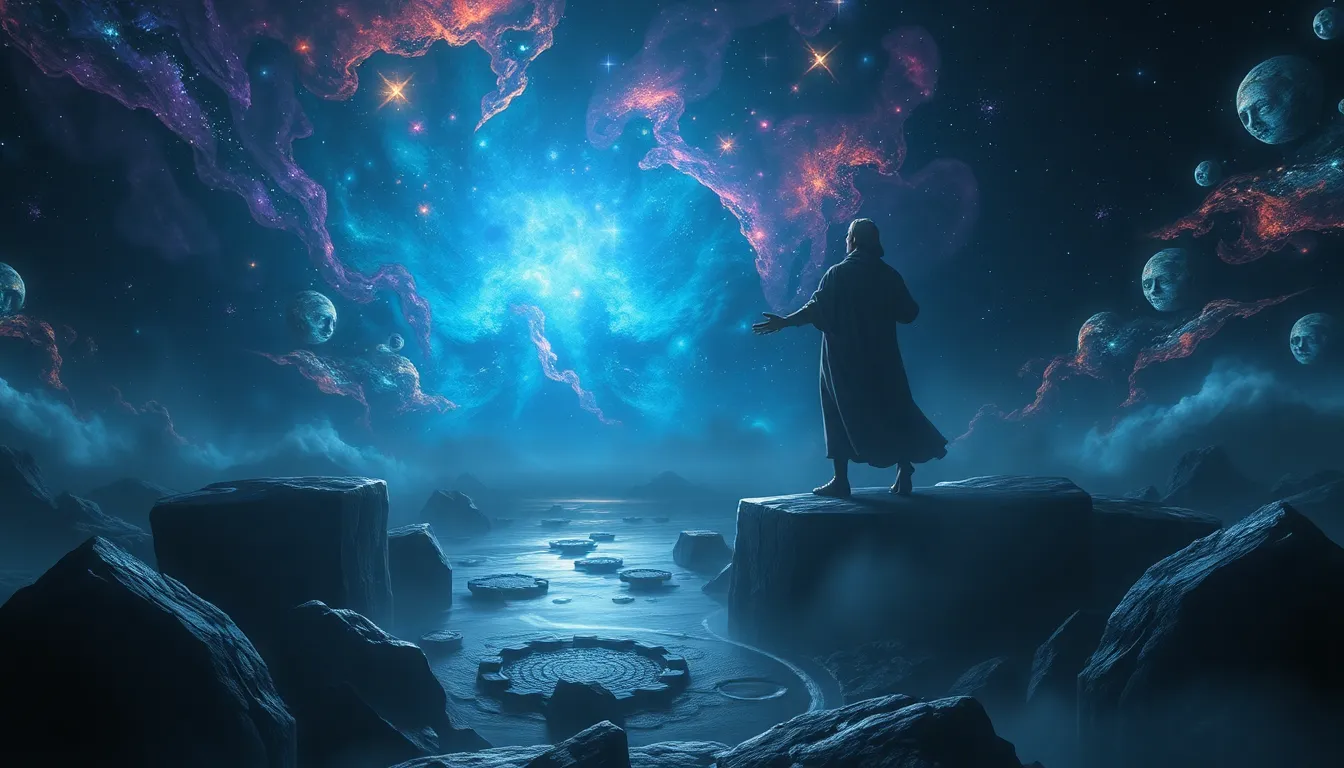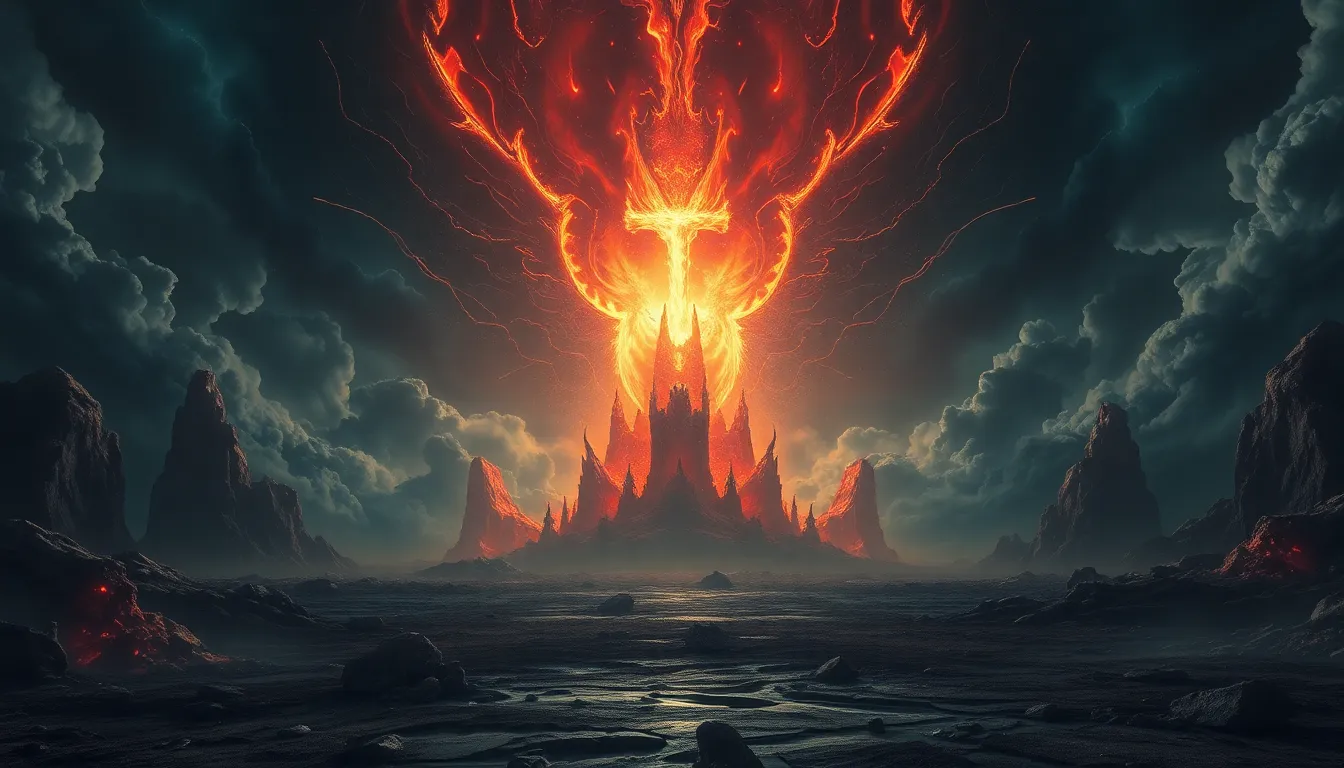The Myth of the Great Dreamer: Morality in Vision
Introduction: The Great Dreamer Archetype
The concept of the “Great Dreamer” transcends cultures and epochs, representing individuals who envision a better future and inspire others to pursue that vision. From ancient myths to modern narratives, the archetype embodies the qualities of creativity, ambition, and determination. Visionaries are often celebrated in society for their ability to dream big and challenge the status quo, becoming catalysts for change.
The significance of visionaries, however, extends beyond mere inspiration; they play a crucial role in shaping the moral and ethical frameworks of their times. By articulating dreams that resonate with collective aspirations, they can influence societal values and behaviors, leading to profound transformations.
Historical Examples of Visionaries
Throughout history, numerous visionaries have left indelible marks on society. Two prominent examples are Martin Luther King Jr. and Steve Jobs, each embodying the essence of the Great Dreamer in different realms.
- Martin Luther King Jr.: A pivotal figure in the American civil rights movement, King dreamed of a world where individuals would be judged by their character rather than the color of their skin. His vision galvanized millions and laid the groundwork for significant legislative changes, highlighting the power of moral clarity in leadership.
- Steve Jobs: As the co-founder of Apple Inc., Jobs revolutionized technology and consumer electronics. His vision of a more connected and innovative world pushed the boundaries of what technology could achieve, influencing not only the tech industry but also cultural perceptions of creativity and design.
These visionaries demonstrated how dreams can serve as powerful motivators for moral and ethical shifts, showcasing the potential impact of visionary thinking on society.
The Intersection of Vision and Morality
Dreams and visions are inherently linked to moral perspectives. They often challenge existing norms and provoke critical reflections on ethics and values. Visionaries like King and Jobs articulated aspirations that compelled society to rethink what was possible, thus shaping the moral landscape.
However, the relationship between ambition and ethical considerations can be complex. Visionaries may pursue their dreams with fervor, but this ambition can sometimes overshadow ethical implications. A careful analysis of their ambitions reveals a duality where the pursuit of a noble dream can lead to ethical dilemmas if not grounded in moral reasoning.
The Double-Edged Sword of Visionary Thinking
While visionary thinking holds the potential for positive change, it can also lead to moral blindness. The excitement surrounding a bold vision can obscure ethical considerations, resulting in unintended consequences.
For instance, consider the following case studies:
- Fritz Haber: Known for his role in developing chemical warfare during World War I, Haber’s vision for agricultural advancement led to devastating ethical implications.
- Elon Musk: His ambitious plans for colonizing Mars bring forth questions about environmental ethics and the implications of space colonization on earthly resources.
These examples illustrate the risks associated with visionary thinking, where the drive to achieve a dream can inadvertently lead to ethical dilemmas that challenge societal norms.
Cultural Perspectives on Morality and Vision
Cultural interpretations of the role of visionaries vary significantly, influencing how dreams are perceived and pursued. In Eastern philosophies, such as Buddhism and Confucianism, the focus may be on harmony, community, and ethical living, whereas Western philosophies often celebrate individualism and self-actualization.
This divergence can lead to different moral implications of dreaming:
- In Eastern cultures, visionary pursuits may prioritize collective well-being and social harmony.
- In Western cultures, visions may emphasize personal freedom and innovation, sometimes at the expense of communal values.
Understanding these cultural perspectives enriches the conversation about the moral responsibilities that come with visionary dreams.
The Role of Society in Shaping Dreamers
Society plays a pivotal role in shaping the development of visionaries. The values, beliefs, and support systems present within a community can either cultivate or stifle the aspirations of emerging dreamers.
Communities have a responsibility to nurture ethical dreaming by:
- Encouraging open dialogue about the moral implications of visionary pursuits.
- Providing mentorship and resources to help dreamers refine their visions with ethical considerations.
- Promoting a culture that values both innovation and accountability.
By fostering an environment that emphasizes ethical dreaming, society can help ensure that the aspirations of visionaries align with moral values.
The Psychological Profile of a Great Dreamer
The traits and characteristics that define successful dreamers often include creativity, resilience, and a strong sense of purpose. However, these traits can carry moral implications:
- Creativity: While creativity fuels innovation, it can also lead to the exploitation of ideas without ethical considerations.
- Resilience: The ability to persevere in the face of adversity is admirable, but it can result in ignoring ethical boundaries in pursuit of a goal.
- Strong Sense of Purpose: A clear vision can inspire others, but if driven by self-interest, it may lead to ethical compromises.
Understanding these psychological aspects is crucial for fostering a generation of dreamers who are not only ambitious but also ethically grounded.
Visionary Failures: Lessons Learned
The failures of visionary movements offer valuable lessons regarding the moral ramifications of ambitious dreams. Analyzing these failures helps clarify the importance of ethical considerations in visionary pursuits.
- The New Coke Failure: Coca-Cola’s attempt to reformulate its flagship product in the 1980s led to public outrage. The failure highlighted the need for companies to align their visionary pursuits with consumer values.
- Space Shuttle Challenger Disaster: This tragic event underscored the consequences of prioritizing ambition over safety and ethical responsibility in space exploration.
These examples serve as reminders that ethical oversight is essential in the pursuit of visionary goals.
Reimagining the Great Dreamer: A Call for Ethical Vision
As we navigate the complexities of modern society, it is crucial to integrate morality into visionary pursuits. To foster ethical dreaming in future leaders, we propose the following:
- Encouraging interdisciplinary education that combines creative thinking with ethical frameworks.
- Establishing platforms for dialogue about the moral implications of innovations and visions.
- Promoting role models who exemplify ethical dreaming alongside their ambitious pursuits.
By championing ethical vision, we can ensure that the Great Dreamer archetype evolves to align with the moral imperatives of our times.
Conclusion: The Future of Morality in Vision
The relationship between dreaming and morality is evolving, reflecting the complexities of contemporary society. As we consider the significance of the Great Dreamer archetype, it is essential to recognize the moral responsibilities that accompany visionary pursuits.
In summary, the journey of dreamers is not solely about the achievement of lofty goals; it is also about navigating the ethical landscape that accompanies those aspirations. By fostering ethical dreaming, we can cultivate a future where visionaries inspire positive change while remaining accountable to the moral imperatives of their visions.



